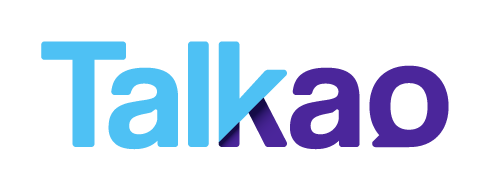
Did you know there are certain professional fields where speaking English is essential and not just an advantage—but a requirement? We’re not talking about English as a bonus skill that could boost your career. We’re referring to jobs where speaking English is absolutely necessary. In other words, where every professional is expected to have at least an intermediate command of the language.
But before diving into careers where English is essential, let’s explore why that is. We’ll examine why mastering this language has become a fundamental requirement on any job applicant’s resume. We’ll also look at what happens if you finish your university studies without making English part of your educational path.
Along the way, we’ll share key tips on how to balance your university studies with English learning. You’ll discover effective techniques, proven learning methods, and powerful success strategies. Plus, you’ll learn how multilingual conversational AI and language recognition technology can become your best allies in the process. With these cutting-edge tools, accelerating your English learning has never been more achievable.
This guide could be a game-changer for your professional future… so make sure to read it closely!
Why English is essential in certain professions
Nowadays, being skilled in your field is no longer enough. Globalization, digital transformation, and the increasing interconnectedness of markets have created a highly competitive job environment. In this context, mastering English is no longer just an added bonus—it’s a necessity. This applies to nearly every sector, but as you’ll see below, it’s especially true for specific professions.
So, the logical question arises: If I’m good at what I do, why is English still essential? You might also wonder why you need to speak English if you’re a native Spanish, French, or Swedish speaker. And, with today’s language recognition technology and AI translation tools, isn’t English becoming less necessary?
Here are the key reasons why English is essential and still indispensable in many careers.
English: The universal language of business
English is an official or working language in over 70 countries, and it’s estimated that more than 1.5 billion people speak it worldwide. Professionally, this translates to one clear fact: not speaking English limits your career and growth opportunities.
English is the primary language used in multinational corporations, tech startups, academic institutions, and international organizations. The most advanced industries use English for internal communication, meetings, technical documentation, contracts, and commercial agreements. Even in local companies, it’s increasingly common to require at least an intermediate level of English—mainly to collaborate with international partners, suppliers, or clients.
Despite impressive advances in language recognition software, human communication remains essential. That’s why bilingual professionals are a valuable asset across many industries.
Broader job opportunities
Learning English gives you access to a wider range of job opportunities. Many job postings today require strong English skills—especially in sectors such as technology, finance, engineering, digital marketing, and healthcare. By learning English, you open doors to:
- International recruitment processes
- Internship programs and scholarships abroad
- Remote work for global companies
- High-paying jobs requiring English communication
On the flip side, not speaking English can be a significant barrier, preventing you from even entering the selection process for many roles. In fact, English is a basic filter in many hiring stages.
Improved employability and competitiveness
We’ve said it before: having a degree or work experience isn’t enough anymore. Companies now prioritize soft skills and cross-functional competencies. Fluency in English is one of the most valued skills, as it shows:
- Adaptability to multicultural environments
- Autonomy when handling global information
- Initiative to continue learning and staying up-to-date
Learning English not only strengthens your CV—it also helps you stand out from other candidates. It increases your chances of getting promoted and being recognized within your organization.
Access to high-level training
If you want to grow professionally, English is essential—especially when it comes to continuous learning. English plays a key role here, as most advanced courses, master’s degrees, certifications, and international conferences are delivered partly or entirely in English. This includes:
- Online courses with multilingual conversational AI
- Master’s programs at foreign universities
- Webinars and keynotes from global experts
- Cutting-edge technical and academic literature
Not speaking English drastically limits your access to updated knowledge, leaving you behind in a fast-moving job market.
Global communication and international teamwork
In today’s hybrid and remote work environments, being part of multicultural teams is common. English becomes the main bridge of communication. Even with the rise of multilingual conversational AI tools, effective communication between professionals still relies on a shared spoken language.
- Speaking English fluently allows you to:
- Collaborate efficiently with colleagues from different countries
- Participate confidently in meetings and presentations
- Write professional emails and reports
- Expand your international network without language barriers
On the other hand, if you don’t speak English, you may find yourself sidelined, unable to take on key roles in global projects.
So, which professions require English?
Before we dive into the list, it’s important to note that these are not the only careers where English is essential. As we’ve emphasized throughout this post, English has become a key language across nearly every industry. That said, here’s a look at the top 10 professions where English is essential indeed.
10 careers where speaking English is essential
As you already know, speaking English isn’t just a useful tool in your career—it’s a key skill for professional growth. But if you’re currently working in any of the following fields—or plan to in the future—learning English becomes even more important. Let’s take a look.
Technology and software development
In computing, software development, and IT, English is the universal language. Programming languages, technical documentation, and the most widely used tools are all in English. Even though multilingual conversational AI tools exist, nearly all professional development and innovation are in English.
What happens if you don’t speak it? You’ll struggle to follow instructions, read others’ code, or stay up to date with the latest advancements. Without strong English skills, you’ll always be a step behind those who do. That’s why English is indispensable in your daily professional life.
Medicine and scientific research
You might think the human body doesn’t require translation. And while science is indeed based on universal principles, over 80% of medical and scientific publications are written in English. International conferences, global research collaborations, and many training opportunities all require strong English comprehension and communication.
Without English, you’ll be limited to outdated resources and miss out on educational opportunities. Most scholarships, PhD programs, and high-level research projects require English proficiency.
Tourism and hospitality
In the tourism and hospitality industries, English is essential without a doubt. Hotels, travel agencies, and airlines expect their employees to speak English fluently. That’s because this sector involves constant interaction with international travelers, and English is the most common language for communication.
If you don’t speak English, your job options will be limited. You won’t be able to deliver top-quality service or work abroad. While language recognition apps may help in certain situations, most employers require verifiable English certification.
Digital marketing and advertising
From Google Ads to social media platforms, most of the tools used in marketing are in English. Global trends usually start in English-speaking countries, and understanding them early gives you a competitive edge. Not speaking English in this field means relying on translations and being limited to local markets.
In the long term, this results in reduced global impact, which is unacceptable for most marketing agencies today.

Engineering and architecture
Like in medicine and science, these professions might seem universal—but they also rely heavily on English. Most technical manuals, international standards, and specialized software are only available in English. For instance, design and engineering programs are rarely translated.
Without English, you’ll face major obstacles when working on large-scale or international projects. Presenting your work, participating in meetings, or communicating with multidisciplinary teams will be nearly impossible.
Aviation
English is the official language of civil and commercial aviation. Pilots, air traffic controllers, and flight crew are required to communicate in English, especially during emergencies where clarity is critical.
Fluency in English is essential for earning international licenses and getting hired by airlines with global routes. No matter your role, if you don’t speak English, you won’t make it past the first interview.
Finance and international banking
The global economy runs on English. From reports by international organizations to market terminology, English is the default language. Many trading platforms and financial analysis tools are only available in English.
So whether you work for a bank, a consultancy, or independently, not speaking English puts you at a disadvantage—especially in a fast-paced environment where timing is everything. Without it, your analyses will be incomplete, and you’ll struggle to communicate with global clients or partners. Even with translation tools, you’ll miss out on critical, real-time information.
International law and diplomacy
International treaties, global contracts, conferences, and diplomatic communications are primarily conducted in English. While organizations like the UN or EU work in multiple languages, English remains the dominant one.
If you don’t speak it, you’ll be excluded from key processes. It will also limit your legal practice to a local or national level, which goes against the essence of international law.
Education and global teaching
In today’s educational landscape, English is a must. If you want to teach abroad or work in bilingual schools, you’ll need it. Furthermore, without English, you won’t be able to publish academic articles or participate in advanced programs.
Not speaking English means missing out on better job conditions and being excluded from international education networks.
Art, design, and entertainment
From film and music to video games, English dominates the creative industries. No matter your artistic field, if you want to exhibit, sell, or collaborate internationally, you need to speak English.
Otherwise, you’ll miss out on festivals, trade fairs, and networking opportunities. On global platforms like YouTube, for instance, English is the most effective language for reaching a broader audience.
What’s the next step?
After reading about these professions, you’re probably wondering: How can I learn English more quickly and easily? Especially with your current academic or professional workload, finding time to study can seem overwhelming.
But don’t worry—by using the right techniques and strategies, it’s absolutely possible to learn efficiently. Language recognition technology and AI-powered tools like Talkao can become your greatest allies in this journey.
Let’s explore how they can help you learn smarter—not harder.

How to successfully balance studying a degree with learning English
Pursuing a university degree is undeniably demanding. Time management, mental energy, and planning are all essential to succeed academically. Now, if you’re also looking to learn English at the same time, it’s natural to wonder: Can I really handle both without burning out? The answer is yes. Not only is it possible — it’s also highly recommended.
Mastering English is essential for your future career opportunities. But beyond that, it will also enhance your current academic experience. The real challenge lies in how to integrate English learning efficiently and sustainably. Let’s explore how to make it easier.
Shift your mindset: English is not a subject, it’s a tool
The first step to successfully combining your degree with English learning is changing your mindset. If you think of English as an extra subject that steals your time, you’ll likely struggle. But if you view it as a tool that boosts your academic performance, it becomes a natural part of your routine.
For instance, many academic texts, research studies, and key publications are originally written in English. Learning the language can help you better understand your field and even stand out from your peers.
Integrate English into your daily study routine
The most effective strategy isn’t setting aside isolated hours just for English. Instead, the goal is to merge it with your existing habits. Here are a few practical ideas:
- Read articles or books in English related to your field. Start with summaries, abstracts, or introductory chapters.
- Change your phone, laptop, and app settings to English. This helps reinforce everyday vocabulary.
- Listen to podcasts in English that are related to your studies. You’ll improve your listening skills and learn technical terms. A great starting point? Talkao’s Podcasts — they offer useful tips and techniques.
- Use English-English dictionaries, such as Talkao dictionaries, instead of translating everything into Spanish.
This approach helps you make steady progress without adding extra pressure — perfect if your schedule is already full.
Set small but consistent goals
One of the most common mistakes when learning English is setting unrealistic expectations like: “I want to be fluent in six months.” A better strategy is to set SMART goals — specific, measurable, and adapted to your current reality. Here are some examples:
- Learn 10 new words per week.
- Watch one educational video in English every two days.
- Read an academic article in English every Friday.
- Have a weekly video call in English with a native or advanced speaker.
Consistency always beats intensity. You don’t need to study three hours a day. With just 20 to 30 minutes of focused learning, you’ll see real progress in a few weeks.
Use artificial intelligence to your advantage
Multilingual conversational AI has revolutionized the way we learn languages. Today, you can fully personalize your study experience and adapt it to your own pace — no rigid schedules needed. With Talkao’s AI-powered tools, you can:
- Improve listening and pronunciation using Talkao Translate.
- Talk with native speakers thanks to real-time translation features.
- Translate English texts instantly using the camera translator — no need to type.
- Watch streaming videos, live classes, or social media content and understand it using the video translator.
- Polish your grammar and spelling with smart translation tools for documents, texts, dictionaries, and smart books.
English doesn’t have to be a burden
Yes — learning English is essential. But no — it doesn’t have to be another overwhelming task in your life. By changing your perspective and applying a few of these practical strategies, learning English can become an enjoyable and motivating activity.
Make the most of today’s AI tools and boost your academic and professional future — starting now.










Newsletter